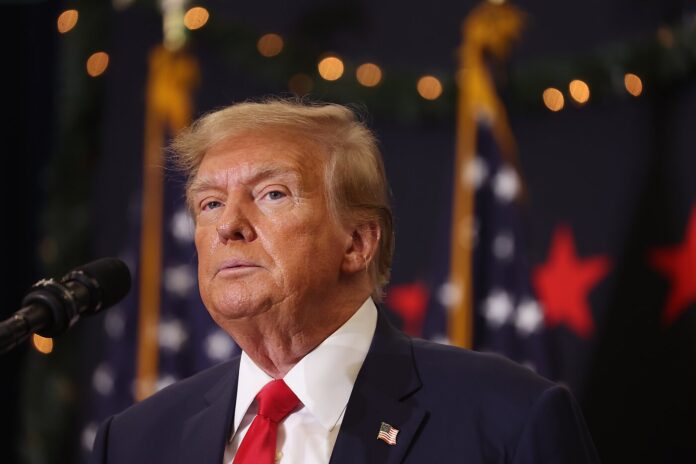As the Gaza crisis continues to unfold, an unsettling pattern has emerged in American foreign policy. U.S. President Donald Trump, who built much of his political identity on a hardline stance against immigration, is now pushing other countries to absorb Palestinian refugees displaced by violence. Yet this demand is at odds with his own immigration policies, where he sought to expel undocumented immigrants and prevent others from entering the U.S.
But this hypocrisy goes even deeper. If America and its allies truly cared about the fate of Palestinians, they wouldn’t be scrambling to force other nations to accept them. They would be demanding that Israel grant Palestinians equal rights, including citizenship, and invest in rebuilding Gaza for everyone who calls it home. Instead, by deflecting responsibility, the U.S. is complicit in perpetuating what is undeniably an apartheid system in Israel.
Apartheid by Definition
The term “apartheid” may evoke images of South Africa’s notorious regime, but it is defined under international law as any system of institutionalized racial segregation and oppression designed to maintain the dominance of one group over another. By this definition, Israel’s treatment of Palestinians fits the bill.
Segregated Legal Systems: In the occupied West Bank, Palestinians live under military law, while Israeli settlers in the same territory are governed by civilian law.
Restricted Movement: Palestinians face countless checkpoints, the separation wall, and severe travel restrictions that limit their freedom.
Resource Discrimination: Basic necessities like water and infrastructure are allocated unequally between Israeli settlers and Palestinian communities.
Denial of Citizenship: Perhaps the most telling feature of this apartheid system is Israel’s refusal to grant Palestinians in Gaza and the West Bank full citizenship and political rights.
If Palestinians were integrated into Israel as equal citizens, the refugee crisis would largely be resolved. Gaza could be rebuilt and developed, not as a perpetual war zone, but as a thriving part of the region.
America’s Double Standard
It’s remarkable that the same country that refuses to accept undocumented immigrants now pressures other nations to welcome Palestinians displaced by Israel’s apartheid. This double standard reveals a fundamental truth: America’s foreign policy isn’t about protecting human rights or fostering democracy. It’s about advancing its own geopolitical agenda.
Trump’s approach to Gaza is reminiscent of a risky move in chess—one that seems advantageous at first but forces a player to start defending multiple other pieces on the board. By advocating for the takeover of Gaza while pushing other countries to absorb Palestinians, Trump has set off a chain reaction of problems. He now faces the challenge of defending America’s credibility, managing international backlash, and justifying a strategy that creates more complications than solutions.
Just like in chess, there are no “magic moves” in geopolitics that solve everything instantly. Trump’s Gaza strategy has exposed America’s hypocrisy and forced him into a defensive position on the global chessboard.
Legacy Matters: Trump’s Moment of Choice
As Donald Trump navigates his second term as president, he must think carefully about his legacy. History will remember leaders not just for their rhetoric but for their actions. Joe Biden, for instance, will likely be remembered for the shocking atrocities that unfolded in Gaza. Many have already nicknamed him “Genocide Joe” due to the level of devastation and loss of civilian life. Whether or not this conflict is formally classified as genocide, Biden’s association with the bloodshed in Gaza will be etched into history, forever tainting his legacy.
This is a cautionary tale for Trump. Does he want to go down the same path as Biden, associated with mass violence and human suffering? Should another Israeli onslaught on Gaza—or any other country—occur under his watch, Trump’s name will be forever linked to it.
There is still an opportunity for Trump to choose a different legacy. He can position himself as the leader who finally stopped the atrocities and brokered a solution that ensured justice and equality for Palestinians. This is his defining moment. Legacy isn’t just about power—it’s about the impact a leader leaves behind.
The Moral Responsibility of Superpowers
America, as a self-proclaimed leader of the free world, often positions itself as a moral authority. Yet its actions frequently contradict those values. The Gaza crisis is a litmus test for America’s moral integrity. Supporting apartheid-like conditions while pressuring other nations to shoulder the consequences is not just hypocritical—it’s morally indefensible. Trump’s administration has a chance to break this cycle and realign America’s foreign policy with genuine human rights principles.
The Danger of Endless Cycles of Violence
History shows that unresolved injustices fester into future conflicts. By turning a blind eye to the systemic oppression of Palestinians, America and its allies are sowing the seeds of future unrest. Trump must recognize that the longer this crisis continues, the harder it will be to achieve any semblance of peace in the region. Ending this cycle would be a monumental legacy.
Economic and Political Stability
The Gaza conflict not only causes immense human suffering but also destabilizes the entire Middle East. Trump’s legacy would greatly benefit if he brokered a solution that stabilized the region economically and politically. The world would remember him as a leader who defied expectations and delivered peace where others failed.
If Trump cares about how history will remember him, now is the time for him to act decisively for peace and justice. The world will be watching.
